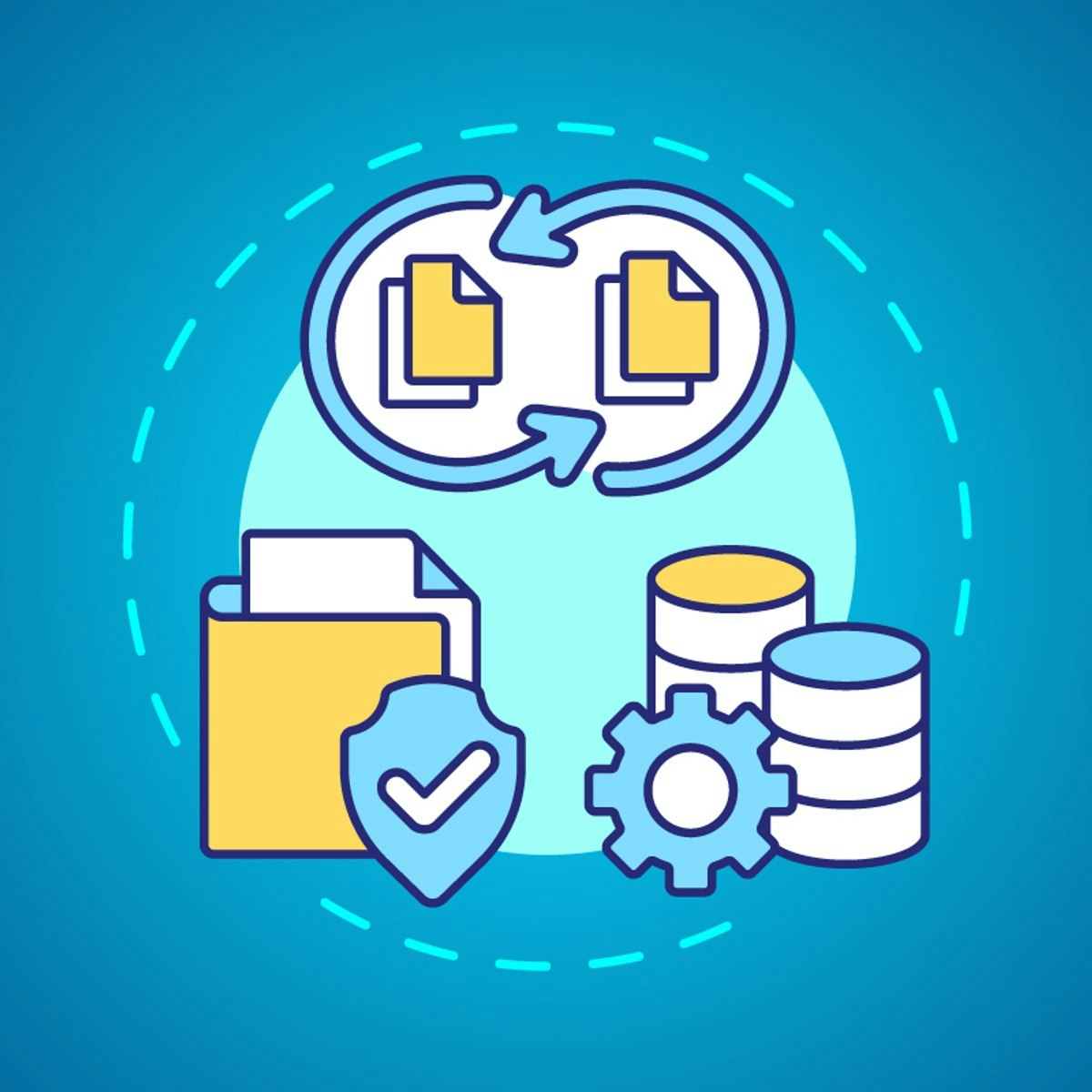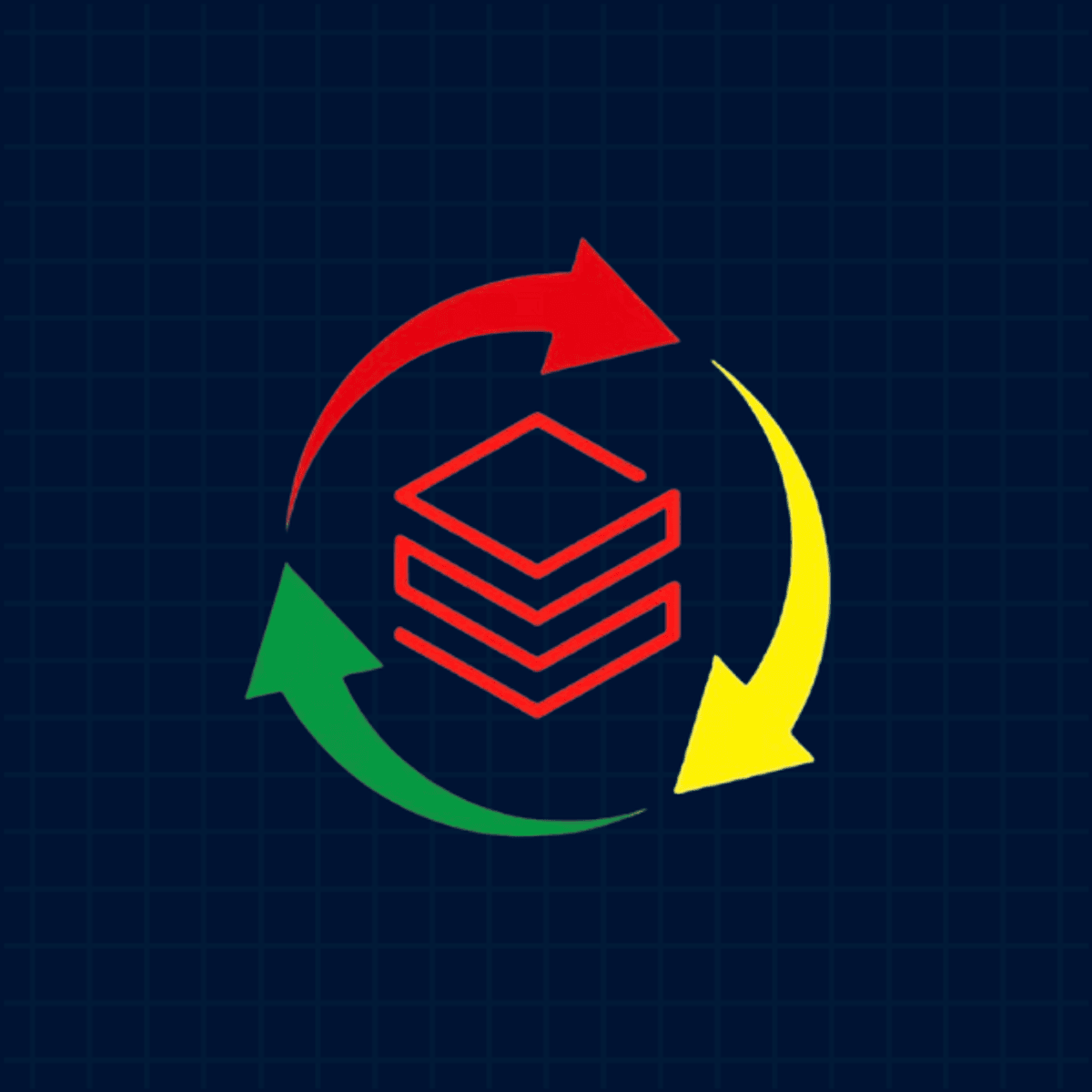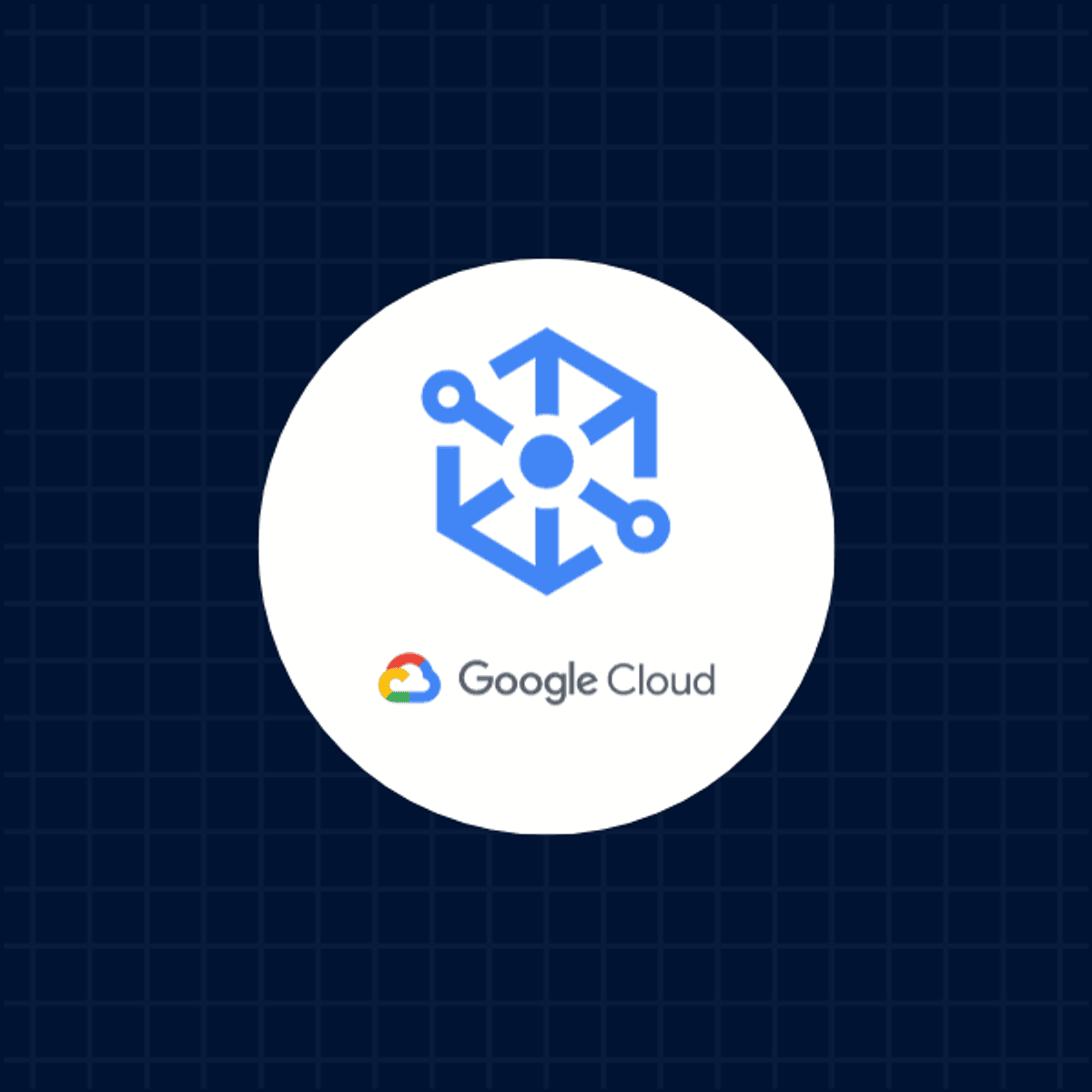Data Management
A Comprehensive Guide to Data Management
Data management is the practice of collecting, keeping, and using data securely, efficiently, and cost-effectively. At its core, data management involves developing and executing architectures, policies, practices, and procedures that properly manage the full data lifecycle needs of an enterprise. In today's digital economy, data is often considered a critical corporate asset, and effective data management is essential for making informed business decisions, optimizing operations, and maintaining a competitive advantage.
Working in data management can be exciting due to its pivotal role in how modern organizations function. Professionals in this field are often at the forefront of enabling data-driven insights, which can transform business strategies and outcomes. The challenge of organizing vast amounts of information into coherent, accessible, and secure systems can be deeply satisfying. Furthermore, the continuous evolution of data technologies, from Big Data analytics to artificial intelligence, ensures that the field is always dynamic and presents ongoing learning opportunities.
For individuals exploring careers or seeking to understand this domain, data management offers a blend of technical challenges and strategic importance. It's a field that impacts nearly every industry, providing a broad spectrum of opportunities.
Introduction to Data Management
This section lays the groundwork for understanding the fundamental concepts of data management and its significance in the contemporary digital landscape. We will explore what data management encompasses, its crucial role in the modern economy, the typical stages data goes through, and how it directly influences organizational decision-making processes. A solid grasp of these basics is vital for anyone looking to delve deeper into specific areas of data management or considering a career in this dynamic field.
Defining Data Management and Its Scope
Data management, in its broadest sense, refers to the comprehensive process of ingesting, storing, organizing, protecting, and maintaining the data an organization creates and collects. The scope of data management is extensive, covering a wide array of tasks, policies, procedures, and practices. The ultimate goal is to ensure that data is accurate, available, and accessible to meet the organization's needs while adhering to security and compliance requirements.
This discipline encompasses various specialized areas, including data governance, data architecture, database administration, data security, data quality, master data management, and business intelligence. Each of these areas focuses on specific aspects of managing data as a valuable asset. For instance, data architecture defines the blueprint for managing data, while data security focuses on protecting data from unauthorized access and breaches. Data quality ensures that data is fit for its intended uses in operations, decision-making, and planning.
Effectively, data management provides the foundation upon which organizations can build reliable analytics, gain insights, and drive strategic initiatives. Without robust data management practices, businesses risk making decisions based on flawed information, facing compliance penalties, or suffering from data breaches that can damage reputation and customer trust. Therefore, understanding its scope is the first step towards appreciating its critical role in any data-driven enterprise.
These courses provide a solid entry point into the world of data management, covering foundational concepts and practical applications.
The Role of Data Management in the Digital Economy
In the contemporary digital economy, data is often described as the new oil – a valuable resource that powers innovation, efficiency, and competitive advantage. Data management plays a critical role in harnessing this resource effectively. It enables organizations to transform raw data into actionable insights, which can drive product development, enhance customer experiences, optimize supply chains, and identify new market opportunities. The ability to manage and leverage data effectively has become a key differentiator for businesses across all sectors.
Strong data management practices are fundamental to participating and succeeding in the digital economy. They underpin advanced analytics, machine learning, and artificial intelligence initiatives that are reshaping industries. For example, personalized marketing, predictive maintenance in manufacturing, and fraud detection in financial services all rely on well-managed, high-quality data. Without a systematic approach to data management, organizations struggle to extract value from their data assets, potentially falling behind more data-savvy competitors.
Furthermore, the digital economy is characterized by an increasing volume, velocity, and variety of data (often referred to as Big Data). This explosion of data presents both opportunities and challenges. Effective data management provides the tools and frameworks to handle this complexity, ensuring that data is not just collected but also curated, governed, and made accessible for strategic use. It also helps organizations comply with evolving data privacy regulations, which are a critical aspect of operating in the digital sphere.
To understand how data fuels business in the modern age, these readings offer valuable perspectives.
Understanding the Data Lifecycle
The data lifecycle refers to the sequence of stages that a particular unit of data goes through from its initial creation or capture to its eventual archival or destruction. Understanding and managing this lifecycle is a core component of effective data management. While the specific stages can vary slightly depending on the model, a typical data lifecycle includes creation, storage, usage, sharing, archiving, and destruction.
Data creation involves generating or collecting new data from various sources, such as transactions, sensors, user inputs, or external feeds. Once created, data needs to be stored in an appropriate system, like a database or data lake, ensuring its security and integrity. The usage stage is where data provides value, as it's processed, analyzed, and utilized for reporting, decision-making, or powering applications. Sharing involves distributing data to relevant stakeholders, either internally or externally, while maintaining appropriate access controls.
As data ages or becomes less frequently accessed, it moves into the archival stage, where it's stored for long-term retention, often for compliance or historical purposes. Finally, the destruction stage involves securely and permanently deleting data that is no longer needed and has reached the end of its retention period. Managing each stage of the data lifecycle effectively ensures data quality, maximizes its value, minimizes risks, and helps meet regulatory requirements.
This course provides an overview of managing data throughout its lifecycle.
Link to Organizational Decision-Making
Effective data management is inextricably linked to an organization's ability to make sound, evidence-based decisions. When data is well-managed – meaning it is accurate, timely, relevant, and accessible – it provides a reliable foundation for insights that can guide strategic planning, operational improvements, and tactical responses to market changes. High-quality data allows decision-makers to understand past performance, monitor current operations, and forecast future trends with greater confidence.
Conversely, poor data management can lead to flawed decision-making. If data is inaccurate, inconsistent, or difficult to access, organizations may rely on intuition, outdated information, or incomplete analyses. This can result in missed opportunities, inefficient resource allocation, regulatory non-compliance, and ultimately, a negative impact on the bottom line. For example, a sales team relying on inaccurate customer data might misdirect its efforts, or a financial institution with poor data controls might fail to identify and mitigate risks effectively.
By implementing robust data management practices, organizations can cultivate a data-driven culture where decisions at all levels are informed by reliable evidence. This includes everything from high-level strategic choices made by executives to everyday operational decisions made by frontline employees. Ultimately, the ability to transform data into actionable intelligence is a key determinant of an organization's agility, resilience, and long-term success in an increasingly complex and competitive environment.
Explore these resources to understand how data informs strategic choices.
Data Governance and Compliance
This section delves into the critical aspects of data governance and compliance, which are paramount for organizations handling sensitive information. We will explore established frameworks for data governance, compare key data protection regulations like GDPR and CCPA, discuss the importance of ethical data handling, and analyze how risk management plays a role in ensuring regulatory compliance. These topics are particularly relevant for compliance officers, legal teams, and IT professionals tasked with navigating the complex legal and ethical landscape of data.
Understanding Data Governance Frameworks
A data governance framework provides the structure—the rules, processes, standards, and responsibilities—for managing an organization's data assets. Its primary goal is to ensure that data is handled consistently and properly across the organization, leading to high-quality data that can be trusted for decision-making and operations. Effective data governance helps organizations maximize the value of their data, manage risks, reduce costs, and ensure compliance with regulations.
Common components of a data governance framework include defined roles and responsibilities (such as data owners, data stewards, and a data governance council), policies and standards for data quality and data security, and processes for managing data throughout its lifecycle. Some well-known frameworks or models include those proposed by DAMA International (DMBOK), the Data Governance Institute (DGI), and consulting firms like McKinsey and PwC. These frameworks offer guidance on how to establish and operationalize data governance within an enterprise, often tailored to the specific needs and context of the organization.
Implementing a data governance framework is not just a technical exercise; it requires strong leadership support, cross-functional collaboration, and a cultural shift towards viewing data as a shared, strategic asset. It aims to answer key questions like: Who owns the data? Who can access and use it? How is data quality ensured? How is data protected? By addressing these questions systematically, organizations can build a solid foundation for all their data-related activities. You can explore more courses on Data Science on OpenCourser to deepen your understanding.
These courses offer insights into establishing and managing data governance within an organization.
Comparing Regulatory Frameworks like GDPR and CCPA
In the realm of data privacy and protection, several regulatory frameworks have emerged globally, with the General Data Protection Regulation (GDPR) in the European Union and the California Consumer Privacy Act (CCPA) in the United States being among the most prominent. While both aim to give individuals more control over their personal data, they have distinct scopes, requirements, and enforcement mechanisms.
The GDPR, effective since 2018, applies to organizations worldwide that process the personal data of EU residents, regardless of where the organization is based. It mandates a "privacy by default" approach, requiring explicit consent for data processing in many cases, and imposes strict rules on data handling, security, and breach notifications. Penalties for non-compliance can be severe, reaching up to 4% of annual global turnover or €20 million, whichever is higher.
The CCPA, which came into effect in 2020 and has since been amended by the California Privacy Rights Act (CPRA), grants California consumers rights regarding their personal information, including the right to know what data is collected, the right to delete it, and the right to opt-out of its sale. It primarily applies to for-profit businesses that meet certain revenue thresholds or handle large volumes of Californian residents' data. While also significant, CCPA's penalties and consent requirements generally differ from GDPR's; for instance, CCPA often uses an "opt-out" model for data sales rather than GDPR's more frequent "opt-in" consent requirement for processing. Understanding the nuances of these and other regulations is crucial for businesses operating in multiple jurisdictions to ensure compliance and build trust with their users.
Addressing Ethical Data Handling Practices
Beyond legal compliance, ethical data handling is a cornerstone of responsible data management. This involves considering the moral implications of how data is collected, used, shared, and stored, even when such actions might be legally permissible. Ethical practices aim to protect individuals' rights, promote fairness, avoid bias, and maintain transparency in data operations. This builds trust with customers, employees, and the public, which is increasingly vital in a data-driven world.
Key aspects of ethical data handling include purpose limitation (collecting data only for specified, legitimate purposes), data minimization (collecting only necessary data), accuracy (ensuring data is correct and up-to-date), and transparency (being open about data practices). It also involves proactively considering potential harms that data use could cause to individuals or groups, such as discrimination resulting from biased algorithms or privacy infringements from overly intrusive data collection. Organizations are encouraged to develop ethical guidelines or codes of conduct for data that go beyond mere legal requirements.
Fostering an ethical data culture requires ongoing training, clear policies, and mechanisms for oversight and accountability. It means asking not just "Can we do this with data?" but also "Should we do this with data?". As data capabilities grow, particularly with advancements in AI and machine learning, the ethical dimension of data management becomes even more critical to ensure that technology serves humanity responsibly.
This course touches upon responsible research conduct, which aligns with ethical data handling.
A related topic is ensuring data is used ethically in scientific pursuits.
Analyzing Risk Management in Regulatory Compliance
Risk management in the context of regulatory compliance involves identifying, assessing, and mitigating risks associated with an organization's data handling practices that could lead to non-compliance with laws and regulations like GDPR, CCPA, HIPAA, or industry-specific mandates. Failure to comply can result in significant financial penalties, legal action, reputational damage, and loss of customer trust. Therefore, a proactive approach to risk management is essential for sustainable data management.
The process typically begins with a thorough assessment to identify potential compliance gaps and vulnerabilities. This includes understanding the specific regulatory requirements applicable to the organization, mapping data flows to understand where sensitive data resides and how it's processed, and evaluating existing controls. Risks are then assessed based on their likelihood and potential impact. For example, the risk of a data breach exposing customer financial information would be considered high impact.
Once risks are identified and assessed, mitigation strategies are developed and implemented. These might include enhancing security measures, updating data handling policies and procedures, providing employee training, and implementing new technologies for monitoring and enforcement. Risk management is not a one-time activity but an ongoing process that requires regular review and adaptation, especially as regulations evolve and new data-related threats emerge. Integrating risk management into the data governance framework helps ensure that compliance is an integral part of the organization's data culture.
These courses can help understand the broader context of IT and data security risks.
Data Architecture and Modeling
This section is tailored for those involved in the technical design and implementation of data systems, such as data architects, engineers, and system designers. We will explore the fundamental principles of database design, differentiate between key storage paradigms like data warehouses and data lakes, and discuss how cloud technologies and the need for scalability influence modern data architecture. A strong understanding of these concepts is crucial for building robust, efficient, and adaptable data infrastructures.
Explaining Database Design Principles
Database design is the process of organizing data according to a specific database model. The main aim of database design is to produce logical and physical designs of a database system. Good database design is crucial for efficient data storage, retrieval, and management, ensuring data integrity, minimizing redundancy, and supporting the performance needs of applications and users. Key principles guide this process, such as normalization, which involves structuring a relational database in accordance with a series of so-called normal forms to reduce data redundancy and improve data integrity.
Another core principle is ensuring data integrity through constraints, such as primary keys, foreign keys, unique constraints, and check constraints. These mechanisms help maintain the accuracy and consistency of data. The design should also consider the types of queries and transactions that will be performed, optimizing for common access patterns. This involves selecting appropriate data types for attributes, indexing strategies to speed up data retrieval, and considering denormalization in specific cases where performance for read-heavy workloads is critical, even at the cost of some redundancy.
Furthermore, database design must account for scalability, security, and maintainability. A well-designed database should be able to grow with the organization's needs, protect sensitive information from unauthorized access, and be easy to modify and update as requirements evolve. Understanding these principles allows architects and developers to create databases that are not only functional but also robust and efficient over the long term. OpenCourser's IT & Networking section lists many relevant learning resources.
These courses provide foundational knowledge in database concepts and design.
For a deeper dive into database design, these books are highly recommended.
Contrasting Data Warehouses and Data Lakes
Data warehouses and data lakes are both used for storing large amounts of data, but they differ significantly in their structure, purpose, and the types of data they handle. A data warehouse typically stores structured, filtered data that has already been processed for a specific purpose, often for business intelligence, reporting, and analytics. The schema (the organization of data) is defined before data is loaded (schema-on-write), ensuring consistency and optimizing for query performance related to predefined business questions.
In contrast, a data lake is a vast repository that can store massive volumes of raw data in its native format, including structured, semi-structured, and unstructured data. The purpose of the data might not be fully defined at the time of ingestion; instead, the schema is applied when the data is read or queried (schema-on-read). This flexibility makes data lakes well-suited for exploratory data analysis, data science, and machine learning tasks where data scientists may want to work with unprocessed data to uncover new insights.
Data warehouses are often optimized for fast SQL queries and are used by business analysts and decision-makers. Data lakes, on the other hand, offer more agility and are often used by data scientists and engineers who need access to diverse datasets for complex analysis. Many organizations use both, often in conjunction, where a data lake might serve as a staging area for data that is later cleaned, transformed, and loaded into a data warehouse for specific analytical tasks. The emergence of the "data lakehouse" architecture seeks to combine the benefits of both, offering flexible data storage with structured data management capabilities.
These resources offer deeper insights into data storage architectures.
This course provides a look into building data warehouses with modern cloud tools.
Integrating Cloud and Scalability Considerations
Modern data architecture increasingly leverages cloud computing platforms due to their inherent scalability, flexibility, and cost-effectiveness. Cloud services like Amazon Web Services (AWS), Microsoft Azure, and Google Cloud Platform (GCP) offer a wide range of managed database services, data warehousing solutions, and data lake storage options. These platforms allow organizations to scale their data infrastructure up or down based on demand, paying only for the resources they consume, which can be more efficient than investing in and maintaining on-premises hardware.
Scalability is a primary driver for cloud adoption in data architecture. As data volumes grow exponentially and processing needs fluctuate, the ability to easily expand storage capacity and compute power is crucial. Cloud providers offer various mechanisms for scalability, including auto-scaling, which automatically adjusts resources based on workload, and the separation of storage and compute, allowing them to be scaled independently. This elasticity ensures that systems can handle peak loads without over-provisioning resources during quieter periods.
However, integrating cloud solutions also introduces new considerations, such as data security in the cloud, data transfer costs, vendor lock-in, and managing hybrid environments (where some data resides on-premises and some in the cloud). Architects must carefully design for these factors, implementing appropriate security measures, optimizing data movement, and choosing services that align with their long-term strategy. The rise of serverless architectures and containerization technologies further influences how scalable and resilient data systems are built in the cloud.
These courses provide insights into managing data within cloud environments.
Data Quality Management
This section is focused on the practices and processes that ensure data is fit for its intended purpose. It's particularly relevant for business analysts and data stewards who are often responsible for maintaining the integrity and reliability of organizational data. We will cover methods for validating and cleansing data, highlight tools used to maintain data integrity, and underscore the critical link between high-quality data and positive business outcomes. Ensuring data quality is fundamental to trustworthy analytics and effective decision-making.
Detailing Validation and Cleansing Methods
Data validation and data cleansing are crucial processes in maintaining high data quality. Data validation involves checking the accuracy and quality of source data before using, importing, or otherwise processing it. This often includes rules and procedures to verify that data conforms to certain standards, formats, and constraints. For example, validation rules might check if a date field contains a valid date, if a numerical field is within an acceptable range, or if a required field is not empty.
Data cleansing, also known as data scrubbing, is the process of detecting and correcting (or removing) corrupt or inaccurate records from a record set, table, or database. The goal is to identify incomplete, incorrect, inaccurate, or irrelevant parts of the data and then replace, modify, or delete the dirty or coarse data. Common cleansing tasks include correcting typographical errors, handling missing values (e.g., through imputation or removal), standardizing formats (e.g., for addresses or dates), and removing duplicate records.
Various techniques are employed for both validation and cleansing. These can range from simple programmatic checks and manual reviews for smaller datasets to sophisticated automated tools and algorithms for large, complex datasets. Statistical methods can be used to identify outliers or anomalies that may indicate data errors. Regular data profiling, which involves examining the data available in an existing data source and collecting statistics and information about that data, is also a key activity that supports both validation and cleansing efforts by providing insights into the data's condition.
These courses cover the practical aspects of cleaning and preparing data for analysis.
Highlighting Tools for Data Integrity
A variety of tools are available to help organizations manage and ensure data integrity, which refers to the overall accuracy, completeness, and consistency of data. These tools can automate many of the tasks involved in data quality management, from data profiling and validation to cleansing and monitoring. They range from standalone software packages to features integrated within larger data management platforms, database systems, and ETL (Extract, Transform, Load) solutions.
Data profiling tools help users understand the content, structure, and quality of their data by generating descriptive statistics and identifying potential issues like null values, outliers, and inconsistent formatting. Data cleansing tools offer functionalities to correct errors, standardize data, and de-duplicate records based on predefined rules or machine learning algorithms. Data quality monitoring tools continuously track data quality metrics over time, providing alerts when issues arise and enabling proactive management.
Many modern data integration and ETL tools also include robust data quality capabilities, allowing organizations to embed data validation and cleansing steps directly into their data pipelines. Furthermore, master data management (MDM) solutions play a role in data integrity by creating and maintaining a single, authoritative source of key business data. The choice of tools often depends on the specific needs of the organization, the complexity of its data landscape, and the scale of its data quality initiatives.
These courses introduce tools commonly used for data management and analysis, which often include features for maintaining data integrity.
Linking Data Quality to Business Outcomes
High-quality data is not just a technical ideal; it is directly linked to tangible business outcomes. When organizations operate with accurate, complete, consistent, and timely data, they are better positioned to achieve their strategic objectives. Good data quality enhances decision-making by providing reliable insights, improves operational efficiency by reducing errors and rework, and supports better customer experiences through accurate personalization and service.
Conversely, poor data quality can have significant negative consequences. Inaccurate data can lead to flawed business strategies, missed market opportunities, and inefficient processes. For example, incorrect customer contact information can result in failed marketing campaigns and frustrated customers. Inconsistent product data can lead to supply chain disruptions and inventory management problems. Furthermore, in regulated industries, poor data quality can result in compliance failures, leading to fines and reputational damage.
Investing in data quality management, therefore, is an investment in the overall health and success of the business. By establishing processes, tools, and a culture that prioritizes data quality, organizations can unlock the full potential of their data assets. This translates into improved profitability, enhanced customer satisfaction, better risk management, and a stronger competitive position in the marketplace. The link is clear: better data leads to better business.
Understanding how data quality impacts business is crucial, and these resources provide context.
Master Data Management (MDM)
This section is dedicated to Master Data Management (MDM), a discipline focused on creating a single, authoritative source of key business data. It's particularly relevant for enterprise architects and cross-functional teams working to ensure data consistency across large organizations. We will compare different MDM approaches, discuss common governance challenges, and evaluate the tools and collaborative benefits associated with successful MDM implementation.
Comparing Centralized vs. Decentralized MDM Approaches
Master Data Management (MDM) strategies can broadly be categorized into centralized and decentralized (or distributed) approaches, each with its own implications for how master data is created, maintained, and shared across an organization. A centralized MDM approach involves creating a single, master repository where all master data (e.g., customer, product, supplier data) is stored and managed. Changes and updates are made in this central system, which then propagates them to other operational and analytical systems.
Decentralized MDM, on the other hand, allows master data to be managed in multiple systems, often closer to where it is created or used. In such an approach, MDM focuses on synchronizing and reconciling master data across these disparate systems to ensure consistency. This might involve a federated model where different domains manage their own master data but adhere to common standards and use integration technologies to share and link data. There are also hybrid models that combine elements of both centralized and decentralized approaches.
The choice between centralized and decentralized MDM depends on various factors, including the organization's size, complexity, existing IT landscape, and data governance maturity. Centralized MDM can offer stronger control and consistency but may require significant organizational change and investment. Decentralized MDM can be more flexible and easier to implement in stages but may pose greater challenges in achieving a single version of the truth. Often, organizations evolve their MDM approach over time as their needs and capabilities change.
This book is a key resource for understanding MDM concepts.
Discussing Governance Challenges in MDM
Effective Master Data Management (MDM) is heavily reliant on strong data governance, but implementing and sustaining MDM governance presents several challenges. One major hurdle is establishing clear ownership and stewardship of master data. Master data often spans multiple business units and applications, leading to potential conflicts over who is responsible for its accuracy, completeness, and consistency. Without clearly defined roles and responsibilities, MDM initiatives can falter.
Another significant challenge is defining and enforcing enterprise-wide data standards and policies for master data. Different departments may have varying definitions or formats for the same data entities (e.g., customer or product). Reaching a consensus on common definitions and ensuring adherence to these standards across the organization requires strong leadership, communication, and change management. Resistance to change and lack of business buy-in can also impede MDM governance efforts.
Furthermore, maintaining data quality within the MDM system is an ongoing challenge. This involves establishing processes for data validation, cleansing, and enrichment, as well as monitoring data quality metrics over time. Integrating the MDM system with numerous source and consuming systems, and ensuring data synchronization and consistency across this landscape, also poses technical and governance complexities. Addressing these challenges requires a comprehensive MDM governance framework that includes dedicated resources, clear processes, and appropriate technology support.
These courses touch upon governance which is crucial for MDM.
Evaluating MDM Tools and Collaboration Benefits
A variety of Master Data Management (MDM) tools are available in the market, offering a range of functionalities to support the creation, maintenance, and governance of master data. These tools typically provide capabilities for data modeling, data integration (to consolidate data from various sources), data quality (profiling, cleansing, validation), workflow management (for data stewardship tasks), and data synchronization (to distribute master data to consuming systems). When evaluating MDM tools, organizations should consider factors such as their specific master data domains (e.g., customer, product, location), architectural requirements (cloud vs. on-premises, centralized vs. decentralized), scalability, ease of use, and integration capabilities with existing systems.
Successful MDM implementation offers significant collaboration benefits across an organization. By providing a single, trusted source of master data, MDM eliminates data silos and inconsistencies that often lead to departmental conflicts and inefficiencies. When different teams work from the same accurate and up-to-date master data, it improves communication, coordination, and decision-making. For example, sales, marketing, and customer service can all have a unified view of the customer, leading to more consistent and effective customer interactions.
Furthermore, MDM facilitates better collaboration by streamlining business processes that rely on master data. For instance, new product introduction processes can be accelerated when all relevant departments have access to accurate and complete product master data. Compliance reporting becomes more reliable and efficient when data is consistently defined and managed. Ultimately, MDM tools and the collaborative environment they foster help organizations operate more cohesively and leverage their data as a strategic asset.
Data Security and Privacy
This section focuses on the critical aspects of protecting data from unauthorized access, use, disclosure, alteration, or destruction, and ensuring compliance with privacy regulations. It is essential reading for cybersecurity experts, compliance teams, and any professional responsible for safeguarding sensitive information. We will explore various data protection techniques like encryption and access controls, discuss the complexities of adhering to global privacy laws, and outline the importance of having robust incident response protocols in place.
Exploring Encryption and Access Controls
Encryption and access controls are fundamental pillars of data security and privacy. Encryption is the process of converting data into a coded format (ciphertext) that can only be read or processed after it's decrypted with a specific key. This protects data confidentiality, ensuring that even if unauthorized individuals gain access to the data, they cannot understand it. Data can, and often should, be encrypted both "at rest" (when stored on devices or servers) and "in transit" (when being transmitted over networks).
Access controls are mechanisms and policies that restrict access to information and information systems to authorized users only. These controls are based on the principle of least privilege, meaning users are granted only the minimum level of access necessary to perform their job functions. Common access control methods include user authentication (e.g., passwords, multi-factor authentication, biometrics), authorization (defining what an authenticated user is allowed to do), role-based access control (RBAC), and attribute-based access control (ABAC).
Together, encryption and robust access controls create multiple layers of defense for sensitive data. Encryption protects the data itself, while access controls protect the systems and pathways to that data. Implementing these measures effectively requires careful planning, ongoing management, and regular review to adapt to evolving threats and organizational needs. These security topics can be further explored in Cybersecurity courses on OpenCourser.
This course offers an introduction to data security concepts.
Addressing Global Privacy Law Compliance
Compliance with global privacy laws is a significant challenge for organizations that operate internationally or handle data of individuals from different regions. Regulations like the EU's General Data Protection Regulation (GDPR), California's Consumer Privacy Act (CCPA)/California Privacy Rights Act (CPRA), Brazil's LGPD, Canada's PIPEDA, and many others impose varying requirements on how personal data must be collected, processed, stored, and protected. Navigating this complex and evolving landscape requires a proactive and comprehensive approach to privacy management.
Key aspects of global privacy law compliance include understanding the territorial scope of each regulation, identifying what constitutes "personal data" under each law (as definitions can vary), establishing a legal basis for data processing (e.g., consent, contractual necessity), and implementing measures to uphold individuals' rights (such as the right to access, rectify, or erase their data). Organizations often need to conduct Data Protection Impact Assessments (DPIAs) for high-risk processing activities and maintain records of their data processing activities.
Data security measures, including encryption and access controls, are crucial for protecting personal data as mandated by these laws. Furthermore, requirements around data breach notifications, cross-border data transfers, and the appointment of Data Protection Officers (DPOs) in certain cases must be addressed. Achieving and maintaining compliance requires ongoing effort, including regular audits, employee training, and updates to policies and procedures in response to new legal developments or changes in business operations.
This book offers guidance for a certification relevant to cloud security and by extension, privacy compliance in cloud environments.
Understanding the differences between major regulations is key.
Developing Incident Response Protocols
An incident response protocol, or plan, is a documented set of procedures and guidelines for identifying, responding to, and recovering from cybersecurity incidents, including data breaches. Having a well-defined and practiced incident response plan is crucial for minimizing the impact of security incidents, ensuring a swift and effective response, and meeting regulatory requirements for breach notification. It helps organizations manage the chaos and stress that often accompany a security event.
A comprehensive incident response plan typically includes several key phases: preparation (establishing policies, tools, and a trained response team), identification (detecting and validating an incident), containment (limiting the scope and impact of the incident), eradication (removing the cause of the incident), recovery (restoring affected systems and data), and lessons learned (analyzing the incident to improve future responses and security posture). Clear roles and responsibilities for the incident response team are essential.
Communication is a critical component throughout the incident response process, both internally (among the response team, management, and employees) and externally (with customers, regulators, law enforcement, and potentially the media). The plan should outline communication strategies and templates. Regular testing of the incident response plan through tabletop exercises or simulations helps ensure its effectiveness and identifies areas for improvement. In an era of increasing cyber threats, a robust incident response capability is no longer optional but a fundamental aspect of data security and organizational resilience.
Big Data and Analytics
This section explores the realm of Big Data and the analytical techniques used to extract value from it. It's geared towards data scientists and business intelligence professionals who work with large, complex datasets. We will compare popular Big Data processing tools like Hadoop and Spark, discuss the integration of machine learning workflows, and illustrate how advanced analytics are applied to generate business intelligence. Understanding these elements is key to leveraging Big Data for strategic advantage.
Comparing Tools like Hadoop and Spark
Apache Hadoop and Apache Spark are two of the most prominent open-source frameworks for processing and analyzing Big Data, but they have different architectures and strengths. Hadoop, developed earlier, is known for its Hadoop Distributed File System (HDFS) for scalable storage and its MapReduce programming model for batch processing of very large datasets across clusters of commodity hardware. It excels at handling massive volumes of data where processing time is less critical than throughput and fault tolerance.
Apache Spark, on the other hand, was designed for speed and can perform batch processing, interactive queries, streaming analytics, and machine learning. A key difference is Spark's ability to perform in-memory processing, which can make it significantly faster than Hadoop's MapReduce (which relies more on disk-based operations) for many workloads, especially iterative algorithms common in machine learning and interactive data analysis. Spark doesn't have its own distributed storage system but can run on top of HDFS, cloud storage (like Amazon S3 or Azure Blob Storage), or other data sources.
While Spark is often seen as a successor or complement to Hadoop's processing capabilities, Hadoop's HDFS remains a widely used storage solution for Big Data. Many organizations use Spark and Hadoop together, leveraging HDFS for persistent storage and Spark for faster, more versatile data processing. The choice between them, or how to combine them, depends on specific use case requirements, including data volume, processing speed needs, types of analytics (batch vs. real-time), and existing infrastructure.
These courses delve into handling and managing large datasets.
Integrating Machine Learning Workflows
Integrating machine learning (ML) workflows with Big Data platforms is crucial for building sophisticated analytical applications that can learn from vast amounts of data. ML workflows typically involve several stages, including data collection and preparation, feature engineering, model training, model evaluation, deployment, and monitoring. Big Data technologies provide the infrastructure to handle the large datasets and computational demands often required for these stages, especially for training complex models.
Frameworks like Apache Spark come with built-in ML libraries (e.g., MLlib) that provide algorithms for classification, regression, clustering, and recommendation, designed to work efficiently with distributed data. These libraries allow data scientists to build and train models directly on Big Data clusters. Data processing tools within these ecosystems are also essential for preparing data for ML, which can involve cleaning, transforming, and normalizing data, as well as creating relevant features from raw data.
The integration also involves tools for managing the ML lifecycle (MLOps), which help automate and streamline the process of building, deploying, and maintaining ML models in production. This includes versioning data and models, tracking experiments, deploying models as scalable services, and monitoring their performance over time to detect drift or degradation. As ML becomes more central to business strategy, the effective integration of ML workflows with robust data management and Big Data processing capabilities becomes increasingly important.
Applying Analytics to Business Intelligence
Applying advanced analytics to Big Data is a cornerstone of modern Business Intelligence (BI). While traditional BI focused on descriptive analytics (what happened?), today's BI leverages diagnostic analytics (why did it happen?), predictive analytics (what will happen?), and prescriptive analytics (what should we do about it?) to provide deeper insights and guide strategic decision-making. Big Data platforms provide the foundation for these more sophisticated analytical approaches by enabling the processing and analysis of large, diverse datasets.
Predictive analytics, for example, uses statistical techniques and machine learning models to forecast future outcomes based on historical data. This can be applied to predict customer churn, forecast sales, identify potential fraud, or anticipate equipment failures. Prescriptive analytics goes a step further by recommending actions to achieve desired outcomes, often using optimization algorithms and simulation techniques. These advanced analytical capabilities transform BI from a reactive reporting function into a proactive, strategic tool.
The insights generated from applying analytics to Big Data are typically presented to business users through interactive dashboards, visualizations, and reports. This allows decision-makers to explore data, identify trends, and understand complex relationships in an intuitive way. Effective BI driven by advanced analytics empowers organizations to make more informed decisions, optimize processes, personalize customer experiences, and gain a competitive edge. You can explore a wide range of Business courses on OpenCourser for more information.
These resources explore the intersection of data analysis and business strategy.
Cloud Data Management
This section is designed for cloud architects and IT managers who are responsible for leveraging cloud technologies for data storage, processing, and management. We will evaluate various cloud storage solutions, discuss strategies for optimizing costs in hybrid and multi-cloud environments, and address critical concerns such as security and the potential for vendor lock-in. Understanding these aspects is key to building modern, scalable, and cost-efficient data infrastructures in the cloud.
Evaluating Cloud Storage Solutions
Cloud providers offer a diverse range of storage solutions designed to meet different data management needs, from object storage for unstructured data to relational databases, NoSQL databases, and data warehouses. When evaluating these solutions, organizations need to consider factors such as data type (structured, semi-structured, unstructured), performance requirements (latency, throughput), durability, availability, scalability, security features, and cost. Each type of cloud storage has its own trade-offs and is optimized for specific use cases.
Object storage services, like Amazon S3, Azure Blob Storage, and Google Cloud Storage, are highly scalable and cost-effective for storing large amounts of unstructured data, such as images, videos, backups, and data lake content. Managed relational database services (e.g., Amazon RDS, Azure SQL Database, Google Cloud SQL) simplify database administration tasks for structured data. NoSQL databases (e.g., Amazon DynamoDB, Azure Cosmos DB, Google Cloud Firestore/Bigtable) provide flexible schemas and horizontal scalability for applications with high-volume, low-latency data access needs.
Cloud data warehouses (e.g., Amazon Redshift, Azure Synapse Analytics, Google BigQuery, Snowflake) are designed for analytical workloads, offering massively parallel processing and optimized query performance on large datasets. The evaluation process should also consider how well a storage solution integrates with other cloud services for analytics, machine learning, and application development, as well as its support for data governance and compliance requirements. Choosing the right mix of cloud storage solutions is critical for building an effective and efficient data architecture. For those managing data on the cloud, explore offerings from providers on OpenCourser.
These courses can help you understand cloud storage options and management.
This book is invaluable for those preparing for AWS certifications, which cover storage solutions.
Optimizing Hybrid and Multi-Cloud Costs
Many organizations adopt hybrid cloud (a mix of on-premises infrastructure and public cloud services) or multi-cloud (using services from multiple public cloud providers) strategies to leverage the best capabilities of different environments and avoid vendor lock-in. However, managing costs in these complex environments can be challenging. Optimizing costs requires careful planning, ongoing monitoring, and the implementation of cost-management best practices.
Key strategies for cost optimization include rightsizing resources (ensuring that virtual machines, storage, and other services are provisioned according to actual needs, not over-provisioned), taking advantage of reserved instances or savings plans for predictable workloads, and using spot instances for fault-tolerant batch processing at lower costs. Implementing auto-scaling to match resources to demand dynamically can also prevent overspending. Data transfer costs between different cloud regions, between clouds, or between cloud and on-premises environments can be significant, so optimizing data movement and placement is crucial.
Effective cost management also involves establishing clear visibility into cloud spending through tagging resources, using cloud provider cost management tools, and potentially employing third-party cloud cost management platforms. Setting budgets, creating alerts for cost anomalies, and regularly reviewing cloud bills help in identifying areas for optimization. A robust governance framework that includes policies for resource provisioning, usage, and decommissioning is essential for controlling costs in hybrid and multi-cloud deployments.
Addressing Security and Vendor Lock-in Risks
While cloud data management offers numerous benefits, it also introduces specific security and vendor lock-in risks that organizations must address. Cloud security is a shared responsibility between the cloud provider and the customer. Providers secure the underlying infrastructure, but customers are responsible for securing their data, applications, and configurations within the cloud. Best practices include implementing strong identity and access management, encrypting data at rest and in transit, configuring network security controls (like firewalls and virtual private clouds), and continuously monitoring for threats.
Vendor lock-in occurs when an organization becomes overly dependent on a specific cloud provider's proprietary services, making it difficult or costly to migrate to another provider or bring workloads back on-premises. This can limit flexibility and negotiating power. Strategies to mitigate vendor lock-in include using open standards and portable technologies where possible, designing applications for portability, adopting a multi-cloud strategy (though this introduces its own complexities), and carefully evaluating the long-term implications of using provider-specific services.
Regular security assessments, penetration testing, and adherence to compliance frameworks (like ISO 27001 or SOC 2) are vital for maintaining a strong security posture in the cloud. Similarly, having clear data exit strategies and understanding the contractual terms related to data portability can help manage the risks associated with vendor lock-in. A well-thought-out cloud strategy will balance the benefits of cloud services with proactive measures to address these inherent risks.
These courses discuss essential aspects of cloud management, including security.
Career Pathways in Data Management
For those aspiring to build a career in data management or transition into this field, understanding the various roles, the value of certifications, and the overall industry landscape is crucial. This section provides an overview of common career paths, discusses the role of certifications like the Certified Data Management Professional (CDMP), and analyzes current industry demand and salary trends. This information aims to guide your career planning in this high-growth domain. Many professionals find that online courses offer a flexible way to gain foundational knowledge and specialized skills. Platforms like OpenCourser allow you to search and compare thousands of courses to find the ones that best fit your learning goals and career aspirations. You can even save courses to a list and explore related career paths directly on the platform.
Mapping Roles like Data Engineer and Data Steward
The field of data management encompasses a variety of roles, each with distinct responsibilities. A Data Engineer, for example, is typically responsible for designing, building, and maintaining the infrastructure and pipelines that collect, store, and process data. They work with databases, data warehouses, data lakes, and ETL tools to ensure data is available and accessible for analysis. This role requires strong programming skills (e.g., Python, Scala, SQL) and knowledge of Big Data technologies.
A Data Steward, on the other hand, is more focused on the governance and quality of specific data domains. They are often subject matter experts within a particular business area (e.g., customer data, product data) and are responsible for defining data standards, ensuring data accuracy and consistency, and managing data access and usage according to policies. Data Stewards play a crucial role in implementing data governance frameworks and ensuring that data is fit for purpose.
Other common roles include Database Administrator (DBA), responsible for the operational health, security, and performance of database systems; Data Architect, who designs the overall data architecture and blueprint for the organization; and Data Quality Analyst, who focuses on identifying and resolving data quality issues. As the field evolves, new roles continue to emerge, reflecting the increasing specialization and strategic importance of data management.
These courses provide insights into roles within and related to data management.
Explore these career paths if you're interested in data-focused roles:
Analyzing Certification Value (e.g., CDMP)
Certifications can play a valuable role in demonstrating knowledge and expertise in the field of data management. One of the most recognized certifications is the Certified Data Management Professional (CDMP) offered by DAMA International. The CDMP is based on the DAMA Data Management Body of Knowledge (DMBOK), which provides a comprehensive framework for data management practices. Achieving CDMP certification can signal to employers a strong understanding of core data management principles, including data governance, data quality, data architecture, and more.
The value of certifications like CDMP lies in several areas. They can enhance credibility, provide a competitive edge in the job market, and potentially lead to higher earning potential. For individuals, preparing for a certification exam can be a structured way to learn and consolidate knowledge across various data management domains. For employers, certifications can help in identifying qualified candidates and ensuring a certain level of competency within their data management teams.
However, it's also important to recognize that while certifications demonstrate knowledge, practical experience remains highly valued. The true value of a certification is often realized when combined with hands-on skills and a proven ability to apply that knowledge in real-world scenarios. Other vendor-specific certifications (e.g., from Microsoft, AWS, Google Cloud related to their data services) can also be valuable, particularly for roles focused on specific technologies. The decision to pursue a certification should align with individual career goals and the specific requirements of desired roles or industries.
This book can be useful for those pursuing cloud certifications, which are also valuable in data management.
Discussing Industry Demand and Salary Trends
The demand for skilled data management professionals remains strong and is projected to grow. As organizations increasingly rely on data for decision-making, innovation, and operational efficiency, the need for individuals who can effectively manage, govern, secure, and analyze this data continues to rise. According to the U.S. Bureau of Labor Statistics (BLS), employment for database administrators and architects is projected to grow 9 percent from 2023 to 2033, which is much faster than the average for all occupations. This growth is expected to result in about 9,500 openings each year, on average, over the decade. Other sources suggest even higher growth rates for related roles like data analysts and data scientists.
Salary trends in data management are generally positive, reflecting the high demand and specialized skills required. Median annual wages vary by specific role, experience, location, and industry. For instance, the BLS reported that the median annual wage for database administrators was $104,620 in May 2024, and for database architects, it was $135,980 in May 2024. Data from other sources like Salary.com suggests an average salary for a U.S.-based business analytics manager around $138,766 as of February 2024. Entry-level salaries for data analysts have also seen significant increases.
Factors influencing salary include the complexity of the data environment, the strategic importance of the role, and specialized skills in areas like Big Data, cloud platforms, data security, and advanced analytics. As organizations continue to invest heavily in their data capabilities, career prospects in data management are expected to remain favorable for those with the right skills and experience. For those considering a career change, the robust demand and competitive salaries can be encouraging, but it's important to ground expectations in the understanding that entry into the field often requires dedicated learning and skill development. The U.S. Bureau of Labor Statistics Occupational Outlook Handbook provides detailed information on various roles.
Consider these career paths which are in high demand:
Emerging Trends in Data Management
This final section looks towards the future of data management, exploring cutting-edge trends that are reshaping the field. It's aimed at innovators, strategic thinkers, and C-suite executives who need to anticipate and prepare for technological shifts. We will delve into the impact of AI-driven automation, assess the potential of blockchain for ensuring data integrity, and address the growing importance of sustainability in data center operations. Staying abreast of these trends is vital for maintaining a competitive edge and ensuring long-term relevance.
Exploring AI-Driven Automation in Data Management
Artificial intelligence (AI) and machine learning (ML) are increasingly being applied to automate and enhance various aspects of data management. AI-driven automation can help organizations handle the growing volume and complexity of data more efficiently and effectively. This includes automating tasks such as data discovery, data quality checks, data integration, metadata management, and even aspects of data governance and security.
For example, ML algorithms can be trained to automatically classify sensitive data, identify data quality issues (like anomalies or inconsistencies) with greater accuracy than rule-based systems, and suggest data cleansing actions. AI can also optimize database performance by learning query patterns and automatically adjusting configurations. In data integration, ML can help map data elements between different sources and automate the creation of ETL pipelines. Chatbots and natural language processing (NLP) are being used to make data access and querying more intuitive for business users.
While AI-driven automation offers significant potential to improve efficiency, reduce manual effort, and enable more proactive data management, it also introduces new challenges. These include the need for skilled personnel to develop and manage AI models, ensuring the fairness and transparency of AI-driven decisions, and addressing the ethical implications of increased automation. However, the trend is clear: AI will play an increasingly integral role in the future of data management.
These courses touch upon AI and its application in data contexts.
A related field is Artificial Intelligence, which you can explore further on OpenCourser.
Assessing Blockchain for Data Integrity and Security
Blockchain technology, originally known for powering cryptocurrencies like Bitcoin, is being explored for its potential to enhance data integrity and security in various data management contexts. Blockchain is a distributed, immutable ledger technology where transactions or data records are grouped into "blocks" that are cryptographically linked together in a "chain." This structure makes it extremely difficult to alter or delete past records, thereby ensuring a high degree of data integrity and tamper-resistance.
In data management, blockchain could be used to create auditable and verifiable trails for sensitive data, track data provenance (its origin and history), and manage data sharing agreements with enhanced transparency and security. For example, in supply chain management, blockchain can provide a trusted record of a product's journey. In healthcare, it could potentially be used to securely manage patient consent for data sharing. Its decentralized nature can also reduce reliance on central intermediaries, potentially improving security and reducing single points of failure.
However, the application of blockchain in data management is still evolving and faces challenges. These include scalability issues (blockchain can be slower and more resource-intensive than traditional databases for high-volume transactions), complexity of implementation, and regulatory uncertainties. While not a universal solution for all data management problems, blockchain offers a promising approach for specific use cases where data immutability, transparency, and decentralized trust are paramount. As the technology matures, its role in specialized data management scenarios is likely to grow.
Addressing Sustainability in Data Centers and Data Management
The rapid growth in data generation and processing has led to a significant increase in the energy consumption and environmental footprint of data centers, which house the IT infrastructure necessary for data storage and computation. Addressing sustainability in data centers and broader data management practices is becoming an increasingly important trend, driven by environmental concerns, regulatory pressures, and corporate social responsibility initiatives.
Efforts to improve data center sustainability focus on several areas. These include increasing energy efficiency through advanced cooling technologies, using renewable energy sources to power data centers, designing more energy-efficient servers and storage hardware, and optimizing workload placement to utilize data centers with lower carbon footprints. Virtualization and cloud computing can also contribute to sustainability by improving resource utilization and reducing the need for individual organizations to maintain their own energy-intensive data centers.
Beyond the data center itself, data management practices can also impact sustainability. For example, effective data lifecycle management, including the timely archival and deletion of unnecessary data, can reduce storage requirements and associated energy consumption. Data minimization principles, which advocate for collecting and retaining only essential data, also contribute to reducing the overall data footprint. As the digital economy continues to expand, integrating sustainability considerations into data infrastructure and management strategies will be crucial for responsible growth.
For further reading on industry trends and future outlooks, resources like those from the World Economic Forum or major consulting firms such as McKinsey & Company often publish insightful reports.
Conclusion
Data Management is a multifaceted and evolving field that is fundamental to the success of modern organizations. It spans a wide range of disciplines, from the technical intricacies of database design and Big Data processing to the strategic imperatives of data governance and ethical data use. As data continues to grow in volume and importance, the need for skilled professionals who can effectively manage and leverage this critical asset will only increase. Whether you are considering a career in data management, seeking to enhance your organization's data capabilities, or simply aiming to understand this vital domain, the journey of learning and adaptation is continuous and rewarding. With the right knowledge and skills, individuals and organizations can navigate the complexities of the data landscape and unlock its immense potential.
OpenCourser is dedicated to helping you find the right educational resources to navigate this field. From foundational courses to advanced specializations, you can browse a vast catalog to chart your learning path. Don't forget to check out the OpenCourser Learner's Guide for tips on how to make the most of online learning and advance your career.

